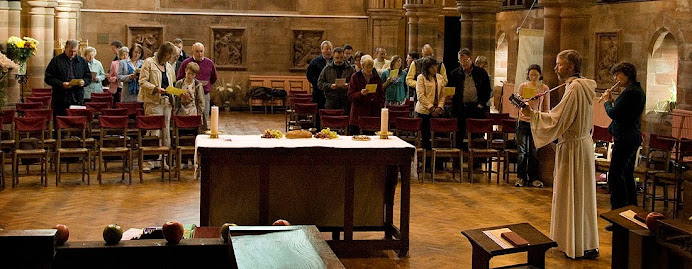This was all very well in an age which accepted the idea that the dwelling place of God is in the heavens, but it seems a little strained in the age of space travel. People have traveled in space ships through the nearer parts of the heavens, and it seems perfectly clear that the heavens are no more the dwelling place of God than the earth is. Clearly, there is no point in trying to re-insert our minds into a world where we can really believe that Jesus rose bodily to the right hand of God.
The point of the Ascension story for us must be that questions about where the body of Jesus might be are not so much 'answered definitively' as 'completely pointless'. If we want to know where or how to find Jesus in our world, then we need to think differently.
